Urinary stones in pet, one approach for all kind of stones?
Wait!!
18 Sep 2024 | Chin
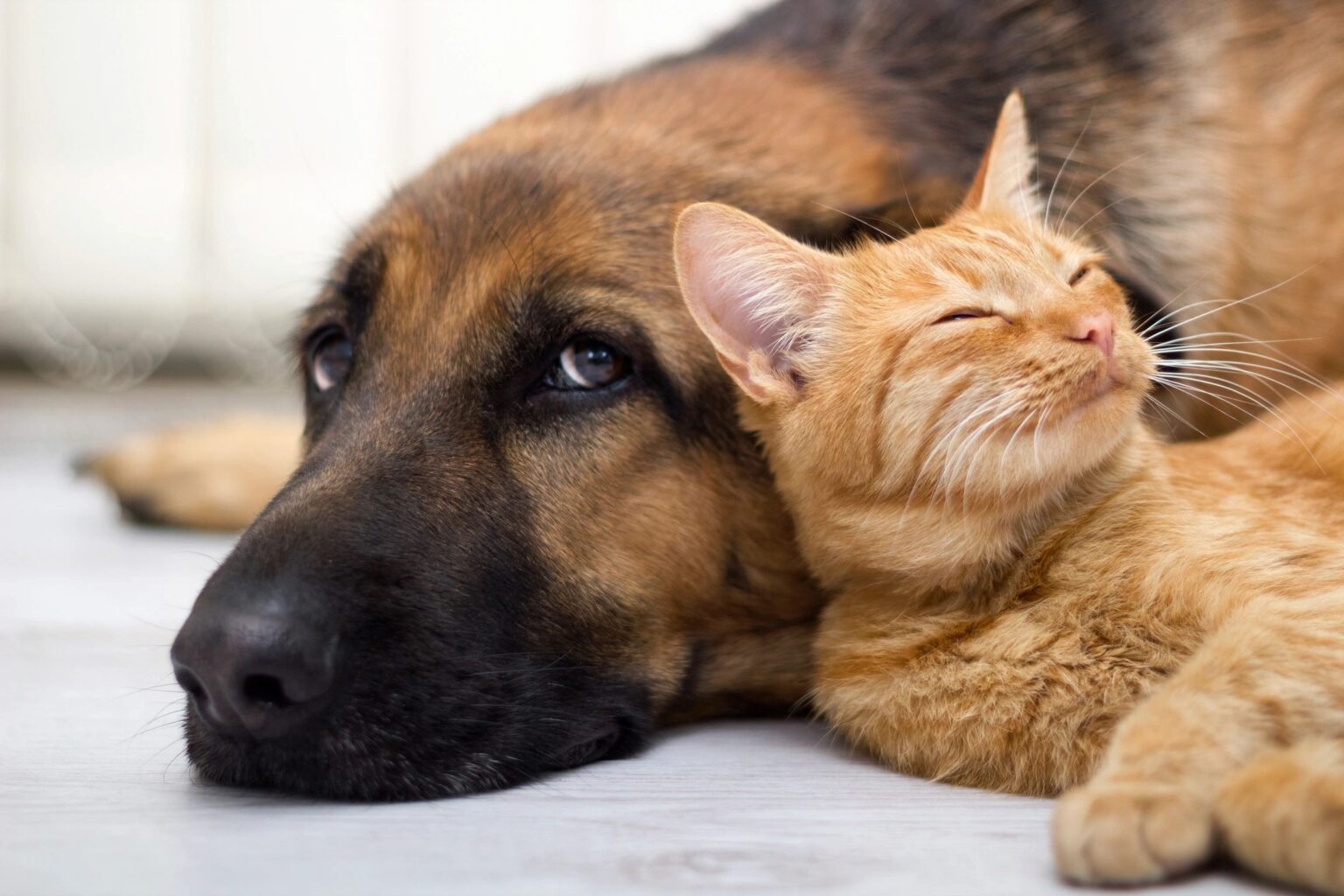
Urinary stones (uroliths) are solid masses that form in the urinary tract of pets, when chemicals in the urine become concentrated and form crystals in the urinary tract, especially in the kidney and bladder, particularly in dogs and cats. These stones can cause discomfort, urinary blockage, and infection. There are several types of urinary stones, each with distinct causes and compositions.
Here’s a brief overview of the most common types:
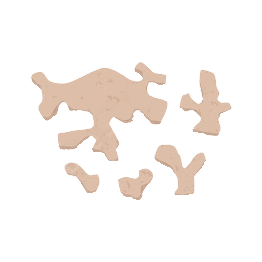
Struvite Stones
Struvite stones are composed of magnesium, ammonium, and phosphate. They are often associated with urinary tract infections. In dogs, they represent around 40-50% of stones, while in cats, they account for 10-20%.
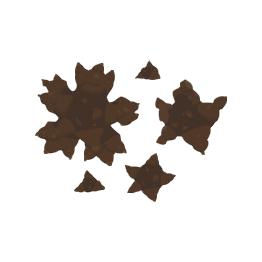
Calcium Oxalate Stones
These stones form when calcium and oxalate bind together. They are one of the most common urinary stones in pets, comprising about 50-70% of stones in cats and 40-50% in dogs.
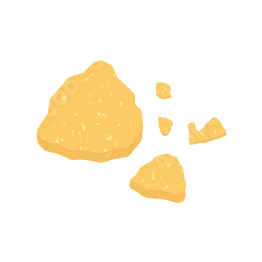
Cystine Stones
Cystine stones are rare, resulting from genetic disorders affecting cystine metabolism. They represent less than 1% of urinary stones in pets but are more common in certain dog breeds like Dachshunds and Bulldogs.
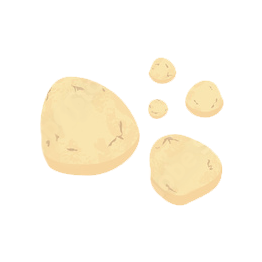
Urate Stones
Urate stones occur due to high uric acid levels and are often linked to liver disorders. They are more prevalent in Dalmatians and English Bulldogs, accounting for about 5-8% of canine urinary stones.
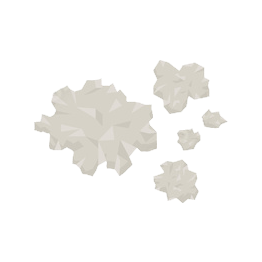
Calcium Phosphate Stones
These stones form from calcium and phosphate and are relatively uncommon in pets, making up about 5% of urinary stones in dogs and cats. They are often secondary to other metabolic issues.
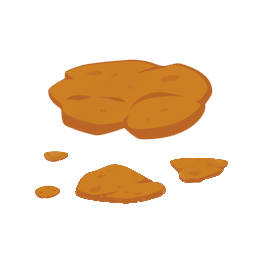
Silicate Stones
Silicate stones are rare and result from consuming food or water high in silica. They make up less than 1% of urinary stones in both dogs and cats, with higher incidences in certain geographic regions.
Current approaches for managing urinary stones.
Different stones have different approaches! Since the stones are chemical and even size different, or coexistence of different stone types, not all the stones solved through flushing or same diet for all types of stones. Most importantly, follow up with your vet routinely to ensure your furkid’s urinary tract condition is healthy. Besides that, know the types of stone before you decide to give them any forms of diet or supplements too for effective management.
- Surgical Removal: For large or obstructive stones, surgical removal (cystotomy) may be necessary. This is a direct and effective method, especially for stones that cannot be dissolved or passed naturally.
- Urinary Prescription Diet: Specialized diets like SO help dissolve certain types of stones (e.g., struvite) and prevent recurrence by controlling mineral content, pH balance, and water intake, making urine less favorable for stone formation.
- Increased Water Intake: Encouraging pets to drink more water dilutes urine, reducing the concentration of minerals that can form stones and helps flush out smaller stones or crystals naturally.
- Non-surgical Stone Removal (Urohydropropulsion): For smaller stones, flushing the bladder with saline (urohydropropulsion) can help remove stones without surgery. This method is less invasive but only suitable for small uroliths.
- Medication to Alter Urine Chemistry: Certain medications can adjust the pH of the urine or prevent the crystallization process. This approach is often combined with dietary management for better results.
For urinary stones, what we have in Petsrejoice?
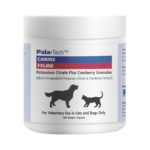
Potassium Citrate with Cranberry
Contains potassium citrate as urine alkalinizer to prevent the formation of calcium oxalate stones. Citrate binds to Calcium in the urine and removed through urination, thus lowering the risk of calcium oxalate stone formation. Added with cranberry extract, which has been shown to enhance urinary tract health.
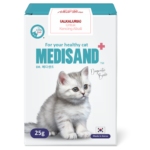
MEDISAND Alkaluria
Colour changing bead to be sprinkled on cat litter to check the changes of pH. Cats have weakly acidic urine pH 5.5-6.5, high pH that cause colour changes in beads may indicate the presence of UTI, struvite stone (it thrives in alkali condition). Recommended to check twice per month.
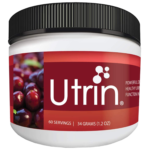
Utrin
Struvite stones are associated with UTI. More for urinary tract health, it contains Cranberries are rich in proanthocyanidins, which exhibit a strong anti-adhesion effect by maintaining urinary tract health, as bacteria are unable to attach and colonize in the urinary tract. D-Mannose can adhere to bacteria preventing them from sticking to the lining of the bladder.
GTF Worldwide Sdn Bhd
- No. 20-2, Plaza Danau 2, Jalan 5/109F, Taman Danau Desa, 58100 Taman Desa, Kuala Lumpur, Malaysia.
- (03) 7982 9881
- (012) 483 5523
- info@gtf.com.my
